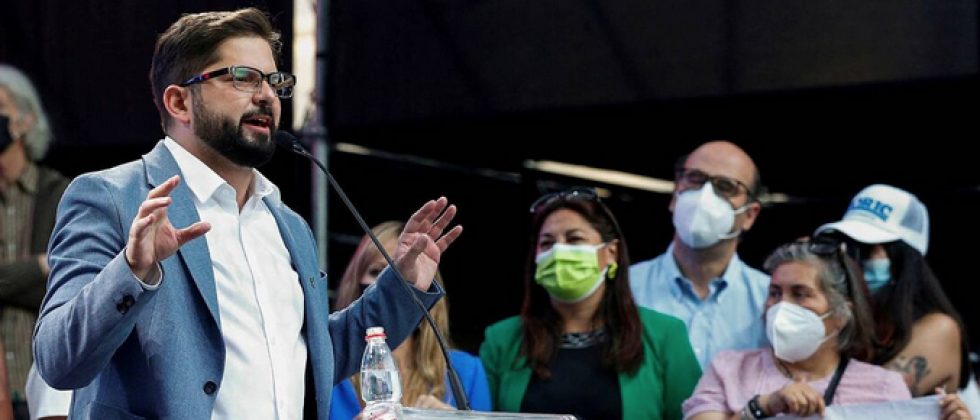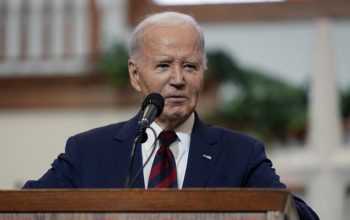news
“Latin America: A Return to the Progressive Movement”, an article by Dr. Leonel Fernández
January 17, 2022
The recent electoral triumphs of Luis Arce in Bolivia, Pedro Castillo in Peru, Gabriel Boric in Chile and Xiomara Castro in Honduras, raise the question of whether Latin America is returning to the democratic or progressive left.
This idea becomes more relevant if one takes into consideration that prior to these electoral victories, the restructuring of the Latin American political camp was underway. The electoral victories of Manuel Andrés López Obrador in Mexico, in 2018; and Alberto Fernández, in Argentina, in 2019, further strengthens this theory.
These last two electoral victories, in two of the region´s three principal economies, occurred before the impact of the Covid-19 pandemic. This indicates that before the pandemic exploded in our region, there was already an expanding malaise that was having a negative impact at the polls for the governments in Office at the time.
This negative undercurrent is better understood if you look back at the region five years before the pandemic hit – that is, from 2014 to 2019. During this period, Latin America was experiencing a mediocre economic growth of only 0.5 percent. This number translated to an increase in unemployment, poverty, social marginalization and an erosion of the purchasing power of the middle class which, in turn, generated anguish and exasperation among local citizens.
With the fast spread of the Covid-19 pandemic, the economies of Latin American nations sank even further. Growth contraction during 2020 was, according to the Economic Commission on Latin America and the Caribbean (ECLAC), 6.8 percent of the GDP, a situation that was truly catastrophic.
Unlike the United States, which in order to face the economic impact of the pandemic authorized the issuance of six trillion dollars in aid or, the European Union, which approved a recovery fund of nearly three trillion Euros for its 27 member-nations. Latin America had nothing similar to offer.
As a result of all of the above, the consequence has been that Latin America has become the most impacted region on the planet. Even though it only represents eight percent of the world´s population, it is carrying 22 percent of those infected with the virus and 33 percent of all deaths provoked by the virus.
Global Economy, Local Politics
Although it is a well-known fact that there has always been a direct relationship between the state of the economy and the performance of the political system, an increasingly incontrovertible characteristic of the contemporary world is the correlation that occurs between the trends of the global economy and the national political electoral cycles.
The recurring financial crises of the 1990s led, at the international level, to various electoral victories of opposition parties. One of these examples was the candidacy of George W. Bush, which prevailed over the Democratic Party candidate.
In Venezuela, the on-going economic and social crisis – determined by both external and internal factors – guaranteed the electoral victory of Hugo Chávez in 1999. His victory gave rise to a new period in the history of Latin America: a predominance of progressive governments in various countries.
However, once the new progressive governments were installed in power changes in the global economy took place. For Latin America these translated into stability, economic growth and social progress, a phenomenon that it had never experienced before.
The years that began in 2003, until 2013, have been called the golden decade of Latin America and the Caribbean. During that period, the region experienced an average annual GDP growth of over five percent.
This coincided, from the political point of view, with the coming to power of progressive governments, or governments of the democratic left. Examples: Luiz Inácio (Lula) da Silva, in Brazil; Nestor Kirchner, in Argentina; Evo Morales, in Bolivia; Rafael Correa, in Ecuador; José (Pepe) Mujica, in Uruguay; and Michelle Bachelet, in Chile.
The economic, social and infrastructure transformations experienced in those countries during this period were truly remarkable. The reason was due, essentially, to the astronomical increase in the prices of commodities or raw materials in the international markets. And, these countries are sound exporters of these products to these countries. This generated an abundance of resources that were channeled to the social sectors. Thus, jobs were generated, poverty dropped and the population’s quality of life substantially improved. For these reasons, the sitting presidents were re-elected, in successive democratic electoral processes.
The Pendulum of Power
As of 2014, however, the situation changed. The prices of oil, gas, copper, iron and soybeans, among others, dropped sharply. From there, social protests, disagreements with the progressive governments of the day, and the victories of right-wing parties in electoral processes in various countries occurred.
It was from then on, the situation in Venezuela began to worsen. Specifically, during the Nicolás Maduro Administration. At the same time, right-of-center candidates such as Mauricio Macri, in Argentina, Jair Bolsonaro, in Brazil and Sebastián Piñera, in Chile, won their respective electoral processes.
This way, as we have argued, the changes in the trends of the global economy produced political alternations in the region giving rise, beginning in 2014, to a new pendulum cycle, which began to move from left to right.
Now the winds are beginning to blow in the opposite direction. The accumulated crisis existing in the pre-pandemic period, together with the economic and social impact generated by the Covid-19 virus, is beginning to have disastrous political-electoral effects on today´s Latin American governments.
This year, 2022, there are two pending presidential elections that will be key in allowing us to see what the future may bring. These are the elections in Colombia, which will take place in May; and in Brazil, scheduled for October.
Regarding Colombia, all the polls published so far present the left-wing candidate, Gustavo Petro, a former guerrilla member and former mayor of Bogotá, and who unsuccessfully participated in the country´s 2018 electoral tournament, ahead of his adversary Iván Duque, the current president of the South American nation.
Although the Colombian situation is highly complex, due to the peace-process polarization, social inequities and unrest, there is no doubt that the economic impact of the pandemic will also play a determining role in the decision of voters.
The situation in Brazil is dramatic. The contrast between Bolsonaro and Lula is abysmal. Currently, the various published surveys give the latter up to a 30 percent lead over the current Head of State.
If Gustavo Petro and Lula da Silva emerge triumphant in these upcoming electoral contests, the trend towards political alternation in times of crisis is confirmed; and consequently, at this stage of the game, to the return to power of the progressive movement.





